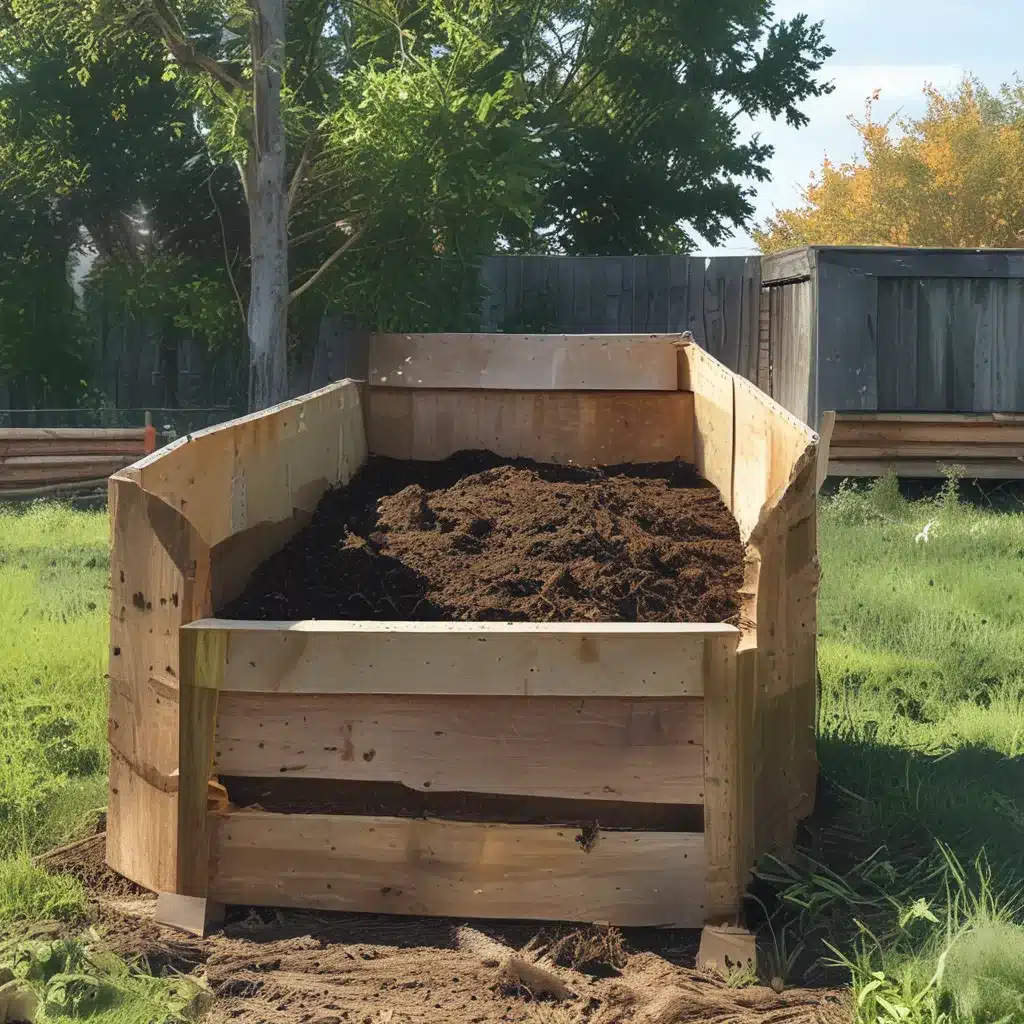
Turning Trash to Treasure: Thornapple CSA’s Eco-Friendly Approach
As a proud member of the Thornapple Community Supported Agriculture (CSA) service, I’ve always been in awe of their commitment to sustainability. But it wasn’t until I had the chance to sit down with Samantha, the head of their composting and waste management program, that I truly grasped the extent of their innovative approach.
Samantha’s infectious enthusiasm made me feel like I was embarking on a thrilling adventure, and before I knew it, I was knee-deep in the fascinating world of composting and waste management. Her passion for closing the loop and turning waste into valuable resources was palpable, and I couldn’t help but get swept up in her contagious optimism.
From Scraps to Soil: Thornapple CSA’s Composting Journey
As Samantha guided me through the composting facility, I was struck by the sheer scale of the operation. “We don’t just see this as a way to dispose of our waste,” she explained, her eyes sparkling with pride. “We view it as an opportunity to create something truly remarkable – nutrient-rich soil that nourishes the very crops our members enjoy.”
The process, she revealed, is a carefully orchestrated dance of science and nature. Thornapple CSA’s composting program starts with the collection of organic materials from their member households and the on-site farm. From fruit and vegetable scraps to coffee grounds and eggshells, nothing is wasted.
“We like to think of it as a giant recycling program,” Samantha said with a chuckle. “Instead of sending all of this valuable matter to the landfill, we’re transforming it into something that will give back to the earth.”
According to research, composting not only diverts organic waste from landfills but also reduces greenhouse gas emissions and improves soil health – all of which are essential for sustainable agriculture.
A Holistic Approach: Integrating Waste Management
But Thornapple CSA’s commitment to sustainability doesn’t stop at composting. As I followed Samantha through the facility, she proudly showcased their innovative waste management strategies, which include recycling, repurposing, and even upcycling.
“We believe in taking a holistic approach to waste management,” Samantha explained. “It’s not just about composting; it’s about finding ways to minimize our environmental impact at every stage of the process.”
One example that caught my eye was their partnership with a local glass recycling facility. “Instead of throwing away all those empty jars and bottles, we collect them and send them off to be recycled,” Samantha said. “It’s a small step, but it adds up to make a significant difference.”
Research has shown that comprehensive waste management strategies like Thornapple CSA’s can lead to substantial reductions in overall waste and greenhouse gas emissions.
The Power of Collaboration: Community Partnerships
As I learned more about Thornapple CSA’s waste management initiatives, I was struck by the extent of their community partnerships. “We don’t see ourselves as working in isolation,” Samantha explained. “We’re part of a larger network of organizations and individuals who are all committed to creating a more sustainable future.”
One such partnership is with a local nonprofit that specializes in upcycling. “They take some of our ‘waste’ materials and turn them into really cool, functional products,” Samantha said, her eyes sparkling with excitement. “It’s a win-win – we divert waste from landfills, and they create beautiful, eco-friendly items that our members love.”
Studies have shown that community-based initiatives like these can have a significant impact on waste reduction and environmental stewardship, as they foster a sense of shared responsibility and collective action.
Cultivating a Culture of Sustainability
As Samantha and I wrapped up our tour, I couldn’t help but feel inspired by the sheer scope of Thornapple CSA’s waste management efforts. But what struck me most was the way they’ve managed to cultivate a culture of sustainability within their community.
“It’s not just about the practical aspects of composting and recycling,” Samantha explained. “It’s about empowering our members to be active participants in the process. We want them to feel a sense of ownership and pride in the work we’re doing.”
To that end, Thornapple CSA offers regular workshops and educational events, teaching members the ins and outs of composting and waste management. They also encourage members to share their own eco-friendly tips and tricks, fostering a sense of community and collaboration.
“At the end of the day, we’re all in this together,” Samantha said, her smile radiating warmth and sincerity. “And by working together, we can create a more sustainable future for ourselves and the generations to come.”
As I left the Thornapple CSA facility, I couldn’t help but feel a renewed sense of hope and inspiration. Their commitment to innovation, community, and environmental stewardship was truly remarkable, and I knew that I would be eagerly awaiting my next box of fresh, nourishing produce – grown with the very soil that Thornapple CSA had so lovingly nurtured.



